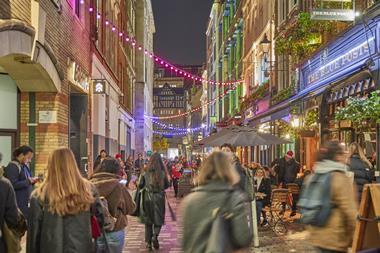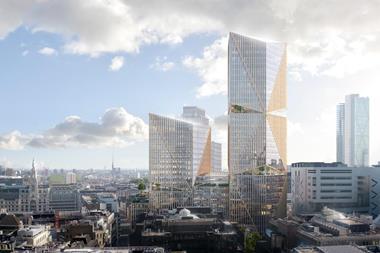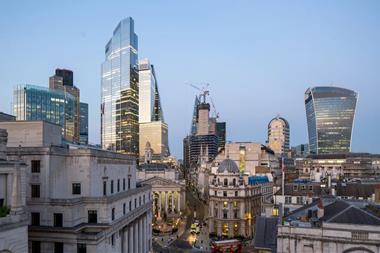An investor fighting the compulsory purchase of property he owns in the London docklands accused Canary Wharf Group of making up "phony plans” and acting in bad faith over the purchase of his ‘ransom strip.
Investor Michael Gross giving evidence at an inquiry into the London Borough of Tower Hamlets' CPO order yesterday said he and another investor Michael Hunt, who own 7 and 8 Heron Quays respectively, were in a “degree of shock that a company of [Canary Wharf Group’s] stature would…behave in such a false way.”
He said that the CPO should be denied because Canary Wharf Group had acted in bad faith and not indicated the true scale of the development it proposed at Heron Quays in an attempt to 'hide' the true value and importance of acquiring Gross and Hunt’s properties.
He accused the group and its representative agent CB Richard Ellis of making up "phony plans and pictures" to pretend a scheme, that excluded his and Hunt's properties, could be developed.
“The only alternatives that were ever put to us [by Canary Wharf Group and CB Richard Ellis], and its reflected in all the correspondence, is that we can do this with you or without you….and the possibility of a bigger scheme was expressly denied by George Iacobescu. We would have been delighted with this bigger scheme where our little buildings are slap bang in the middle of the floor plate but they were at pains to conceal that from us,” said Gross. “It was a calculated, premeditated, orchestrated attempt to deceive us on the key relevance of our properties and the nature and scale of the scheme.”
Counsel for Tower Hamlets under cross examination asked him if it was not a 'rational' response for Canary Wharf Group to look to develop a different scheme that could be completed without acquiring 7 and 8 Heron Quays since they could not negotiate a purchase and Gross and Hunt did not wish to sell.
Gross agreed that Canary Wharf Group was entitled to look at whatever options it wanted for its own land. He also agreed that in negotiations it would be unrealistic to expect Canary Wharf Group to provide details of all its plans for the site upfront.
Shot in the dark
He said the joint £50m that he and Hunt were seeking was a "shot in the dark" figure that they had decided on as they waited for a lift at One Canada Square on the way to their first meeting with Canary Wharf Group chief executive George Iacobescu.
Gross said: “We picked a high figure which in negotiation is what you do. It was a shot in the dark and we hoped that there would be honest negotiation and we would come to a more accurate figure. In any negotiation you start at the top and come down.”
He admitted he was aware when he bought 7 Heron Quays that there was already an existing planning consent - known as the tarmac consent- for a 1.3m sq ft scheme that required the demolition of his site and that the planning consent had already been partially implemented.
"I am quite happy to say that I bought it with the possibility in mind that it may be a ransom strip,” said Gross who said he knew if the was the “last man on the ship” he could command a great “marriage value” for the site.
Gross denied that he was an unwilling seller unless it was at a price that provided a 'ransom' value. Gross said he refused to go to a Lands Tribunal in January or agree a sale which included an overage provision to claw back money if Canary Wharf received consent for a larger scheme because it was not a ‘free’ negotiation and he would not be in control.
"I am always prepared to sell anything except my good name and family provided the price is right. I wanted what my property could demand in terms of a marriage value,” he said
Gross admitted that a previous valuation, carried out by DTZ under his instruction, valued the property at around £2m. He said this was not out of kilter with his demand for £25m for his property as the valuation did not reflect the ‘hope value' of the site.
The inquiry has now ended.






























No comments yet